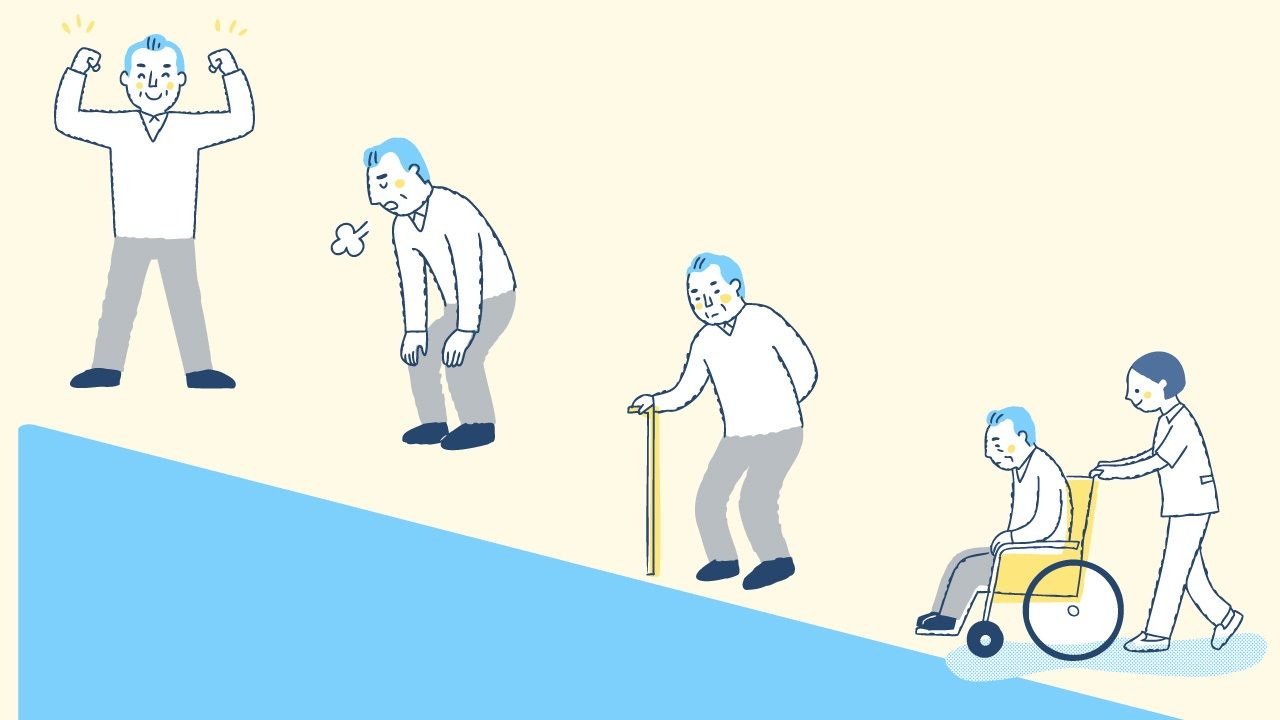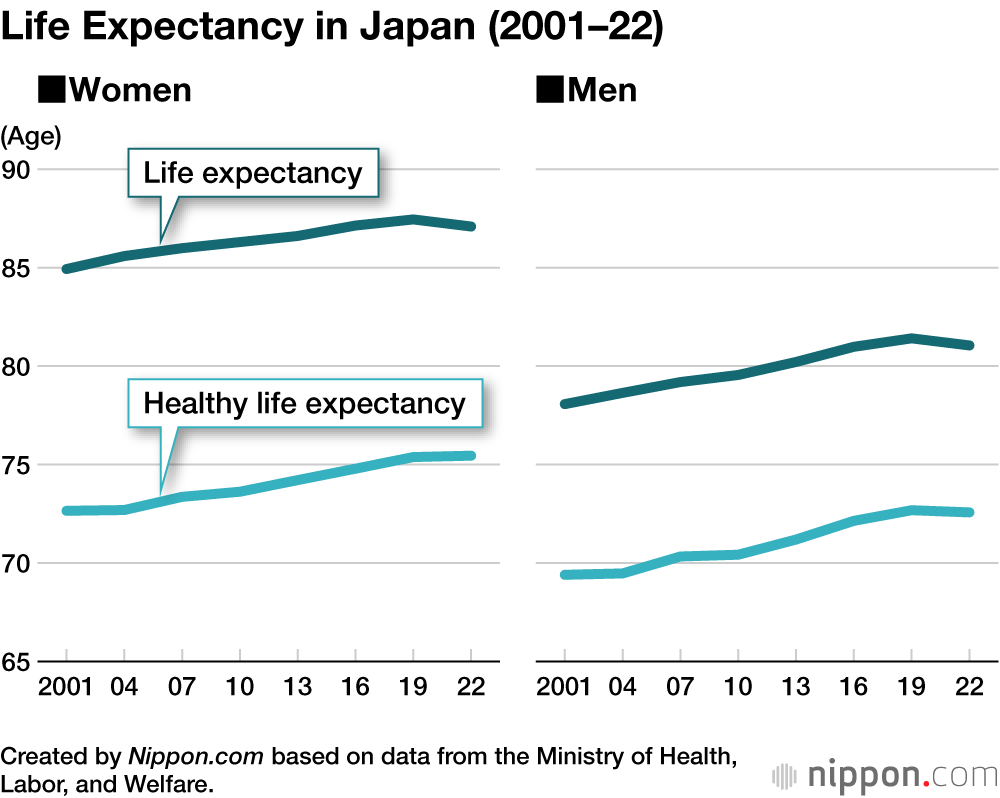
Healthy Life Expectancy Gap Remains Constant in Japan
Health- English
- 日本語
- 简体字
- 繁體字
- Français
- Español
- العربية
- Русский
In 2022, “healthy life expectancy,” the period during which a person can live in full health with no need for nursing care, was 75.45 years for women and 72.57 for men in Japan. This was up by 0.07 years for women, but down by 0.11 years for men compared with 2019. Healthy life expectancy is calculated every three years by the Ministry of Health, Labor, and Welfare, based on a national survey.
Japan’s average life expectancy is 87.09 years for women and 81.05 for men, so subtracting healthy life expectancy to calculate the period of living in imperfect health gives 11.63 years for women and 8.49 for men. While this was a fall of 0.43 years for women and 0.24 years for men compared with 2019, the below graph shows that, overall changes in both average and healthy life expectancy since 2001 have remained almost in parallel. A major issue for both individuals and society is how to reduce this gap by lengthening healthy life expectancy.
By prefecture, Shizuoka had the longest healthy life expectancy for both women and men, with 76.68 years and 73.75 respectively. Iwate had the shortest life expectancy for both, with 74.28 years for women and 70.93 for men.
(Translated from Japanese. Banner photo © Pixta.)

